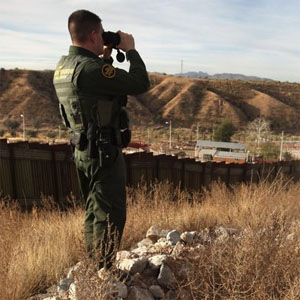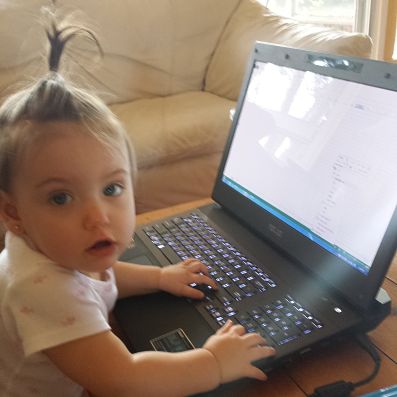
Oscar
Charleston, SC
Male, 31
Spent a bit over four years (2006-2010) serving as a Border Patrol Agent in Tucson Sector, AZ: the busiest sector in the country. Worked numerous positions, and spent the last year and a half operating/instructing ground radar installations. Duties included: field patrols, transport, processing, control room duties, transportation check, checkpoint operations, static watch duties, etc.
The last couple of weeks before you graduate start looking...that's the beauty of the internet. Start researching and contact apartment complexes near your station etc. Heck you could even check into one of those hotels that lets you pay by the week for the first couple of weeks. Me and my classmates found a house to rent via Craigslist. We stayed there for 6 months then all moved to our own apartments/houses.
It's up to you to arrange the move of your family. It's not easy, but you'll figure it out. Just don't sign any papers or leases until you graduate. You should be able to tell the home owner or apartment complex your situation.
I don't believe so. The application process has no real steps you can skip or speed up. However, if you contact the agents you work with they would possibly be able to put you in touch with the Sector's recruitment agents who might be able to tell you more.
Yep.
You can. I don't recommend it, for obvious reasons. This has been discussed previously.
Sr. Software Engineer
 Is it basically impossible for a skilled programmer to be out of work these days?
Is it basically impossible for a skilled programmer to be out of work these days?
Investment Banker
 What's a 100-hour work week like?
What's a 100-hour work week like?
Emergency Room Manager
 What is the most bizarre thing you've seen in your ER?
What is the most bizarre thing you've seen in your ER?
You get very very basic intelligence training, but nothing that will make you stand out. In fact those courses were FLETC courses and not the BP courses, so they may not even include them anymore.
Like everything else, the BP does have intel units. However these units are small, and very difficult to land (normally going to senior agents). If you were able to get into intel in the BP, then yes I'd imagine there would be a decent amount of crossover.
I am currently doing a certificate in Intelligence Analysis with an online university as that field interests me as well. I would probably suggest getting some college credits or degrees in intelligence if that's really what your end goal is. Of course, working in the BP would give you the money to do so.
Good luck!
That question will come up during your background investigation and/or polygraph test. I'm not sure what effect a positive answer would have in that situation. It is something that will come up for any government job which involves any level of security clearance though, and I doubt it can help.
Unfortunately in certain lines of work - those things you do on purpose or by accident as a young person can come back and bite you in the ass. I know several of my fellow agents had smoked weed before joining the BP, but I don't know if they answered truthfully during their background investigations.
Personally I think weed should be legalized, but I imagine it might depend on the person doing your background investigation.
No idea. That's a customs question, so I'm not sure. Mexican customs is pretty lax.
-OR-
 Login with Facebook
Login with Facebook (max 20 characters - letters, numbers, and underscores only. Note that your username is private, and you have the option to choose an alias when asking questions or hosting a Q&A.)
(A valid e-mail address is required. Your e-mail will not be shared with anyone.)
(min 5 characters)
By checking this box, you acknowledge that you have read and agree to Jobstr.com’s Terms and Privacy Policy.
-OR-
 Register with Facebook
Register with Facebook(Don't worry: you'll be able to choose an alias when asking questions or hosting a Q&A.)